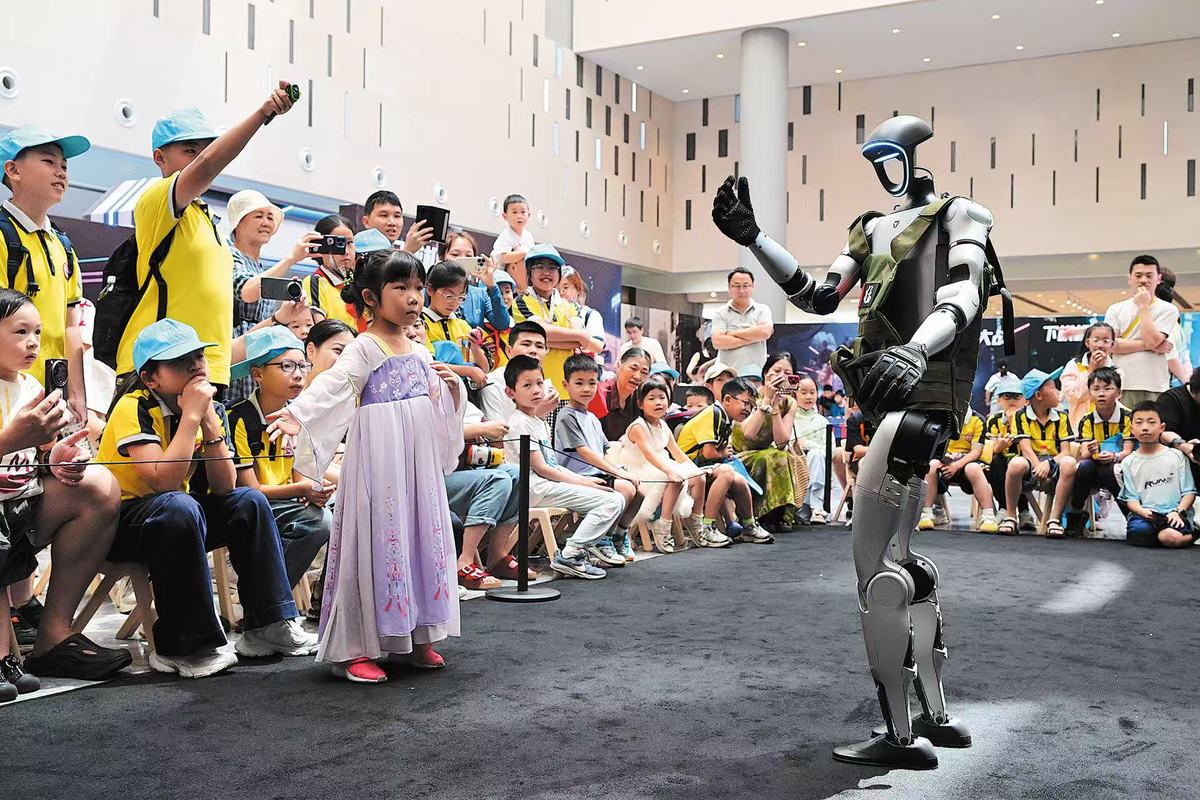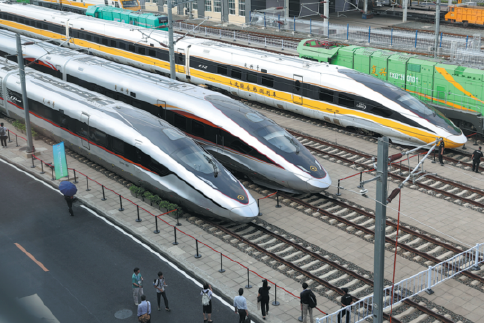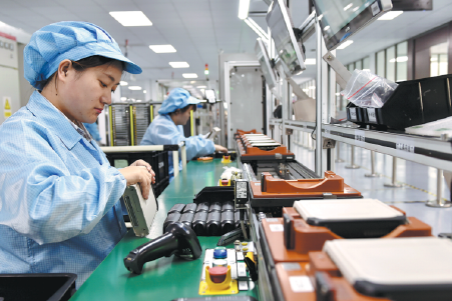Unitree begins preparation for mainland float


Unitree Robotics, a Chinese manufacturer of humanoid robots, has begun preparations for an initial public offering, joining a wave of domestic embodied AI companies in tapping the capital market as they race to become globally leading robotics firms.
While Unitree has yet to disclose its intended market for a flotation, several sources told China Daily that China's STAR Market on the Shanghai Stock Exchange is the likeliest destination.
According to a filing posted on the website of the China Securities Regulatory Commission, the company is under the listing guidance of CITIC Securities. The company could file its IPO as early as October.
Founded by Wang Xingxing, Unitree focuses on the high-performance humanoid and quadruped robots. Wang controls roughly 34.8 percent of the firm through direct and indirect holdings.
The Hangzhou, Zhejiang province-based startup's G1 humanoid robot surprised viewers in January when 16 such robots performed a dance routine on China's Spring Festival Gala, which was viewed 16.8 billion times.
Wang has said previously that the company's annual revenue has surpassed 1 billion yuan ($137 million) and that it has been making a profit since 2020, which industry experts said is a rare feat in the capital-intensive robotics field.
Compared with counterparts in the United States, Chinese robotics makers are mass-producing humanoid robots for consumers at cheaper prices.
Unitree's G1 is priced at 99,000 yuan ($13,600). After the company became widely known, the humanoid robot has been frequently spotted at meetings, in restaurants, and in various galas as well as activities.
In addition to the humanoid robots, Unitree also offers the Go2 robotic dog, starting at 9,997 yuan, along with various accessories. The Go2 series has been well-received for its versatility and affordability, making it a popular choice among tech enthusiasts.
Unitree's IPO push comes amid a red-hot summer of fundraising across China's embodied AI sector, a field combining robotics and artificial intelligence to enable machines with physical agency in the real world.
Earlier this month, humanoid robot startup AgiBot made headlines with a bold move to gain control of a material company via equity transfer and tender offer, which was seen by many industry insiders as a back-door listing play aimed at fast-tracking onto the STAR Market.
Meanwhile, early-stage fundraising has surged.
In July alone, several players in the embodied AI sector disclosed fresh financing rounds, drawing heavyweight backers including Tencent Holdings, Alibaba Group, and Geely.
According to data from tech-focused ITjuzi.com, China's embodied AI industry saw 133 investment events totaling over 18 billion yuan as of last week, already surpassing the full-year 2023 figures by both volume as well as value.
Rick Xiong, general manager of the Beijing Embodied Artificial Intelligence Robotics Innovation Center, said: "These combined efforts will shape the future in our favor. Chinese robot companies have the right timing, the right place and the right people to accelerate the humanoid robot push."
Xiong said that leading Western countries have witnessed deep-pocketed industry giants dominating the robot landscape, whereas China has been characterized by a proliferation of small to medium-sized enterprises striving to navigate the competitive terrain of humanoid robots.
He also said that the rise of artificial intelligence large language models, exemplified by technologies like ChatGPT, has been a game-changer in the robotics industry.
While investor enthusiasm remains high, industry insiders said the real challenge lies in large-scale commercialization. Analysts see a growing divide between players chasing hype and those delivering viable applications.
Wang from Unitree recently predicted that humanoid robots would be widely used in industries and services within three to five years, with early adoption in hazardous or repetitive environments.
Wang Feili, a machinery analyst at UBS Securities, echoed that view, saying humanoid robots will likely first land in factories and service settings before entering households. "Industrial scenarios are less complex and more tolerant of cost, whereas consumers expect versatile capabilities — the bar is much higher at home," she said.
chengyu@chinadaily.com.cn




































